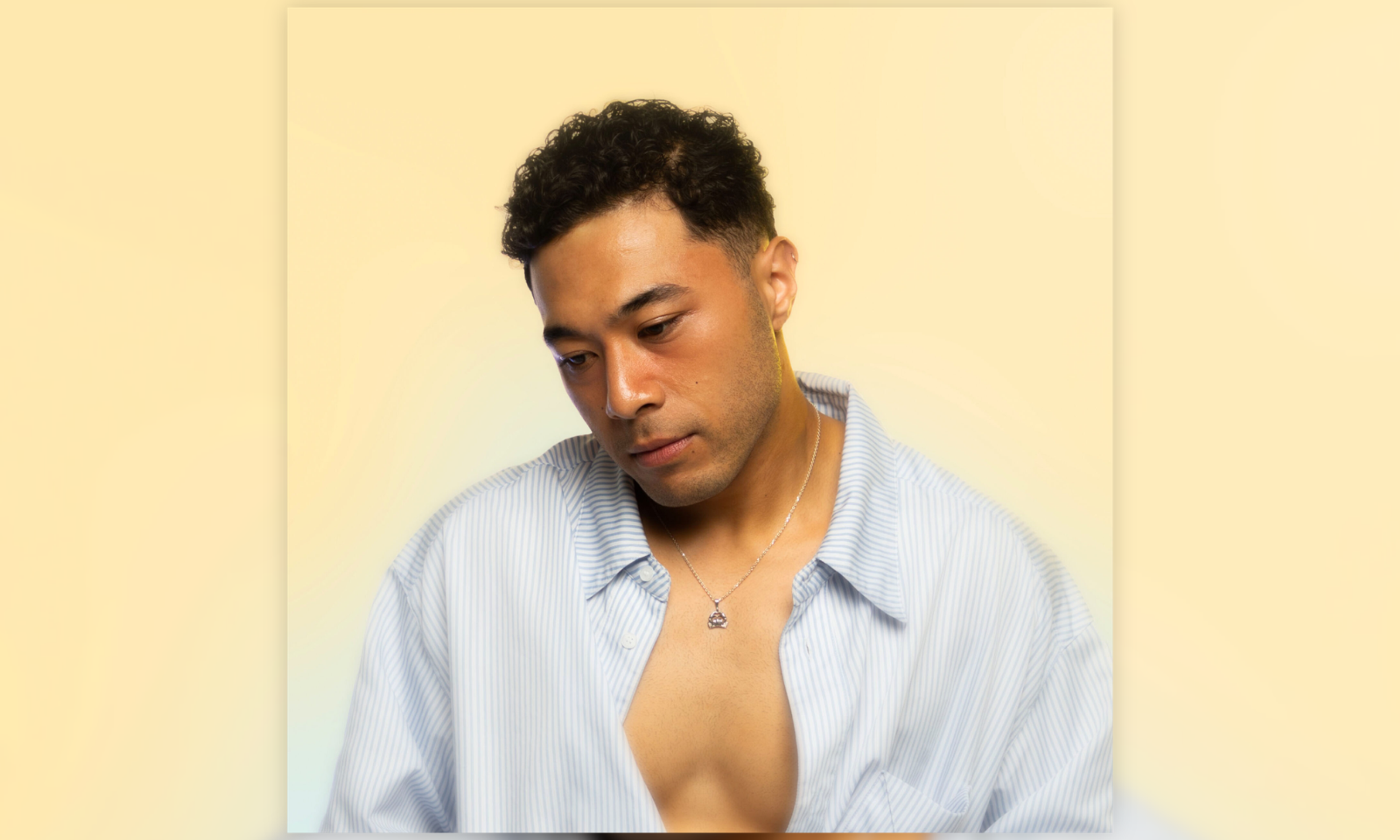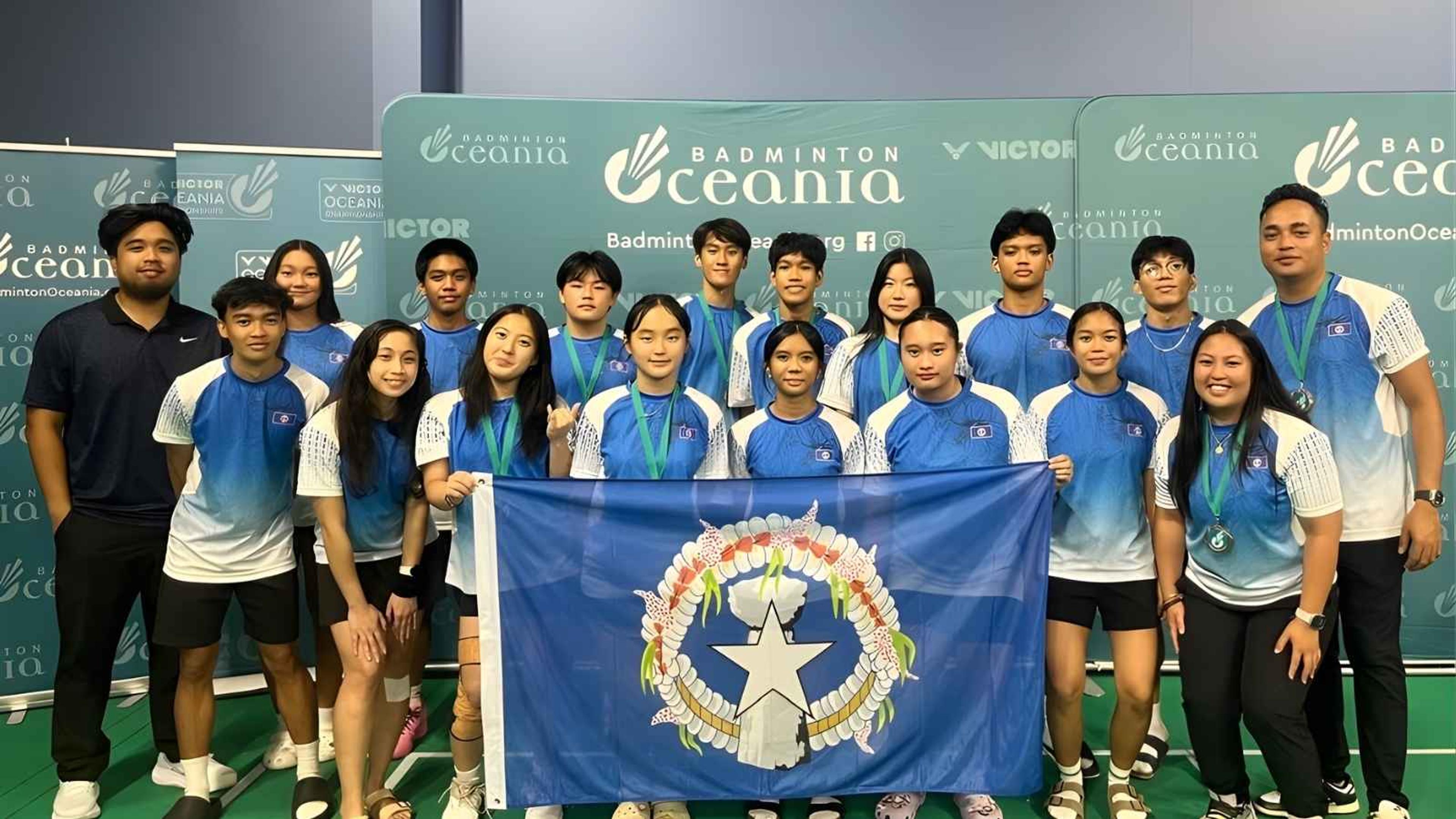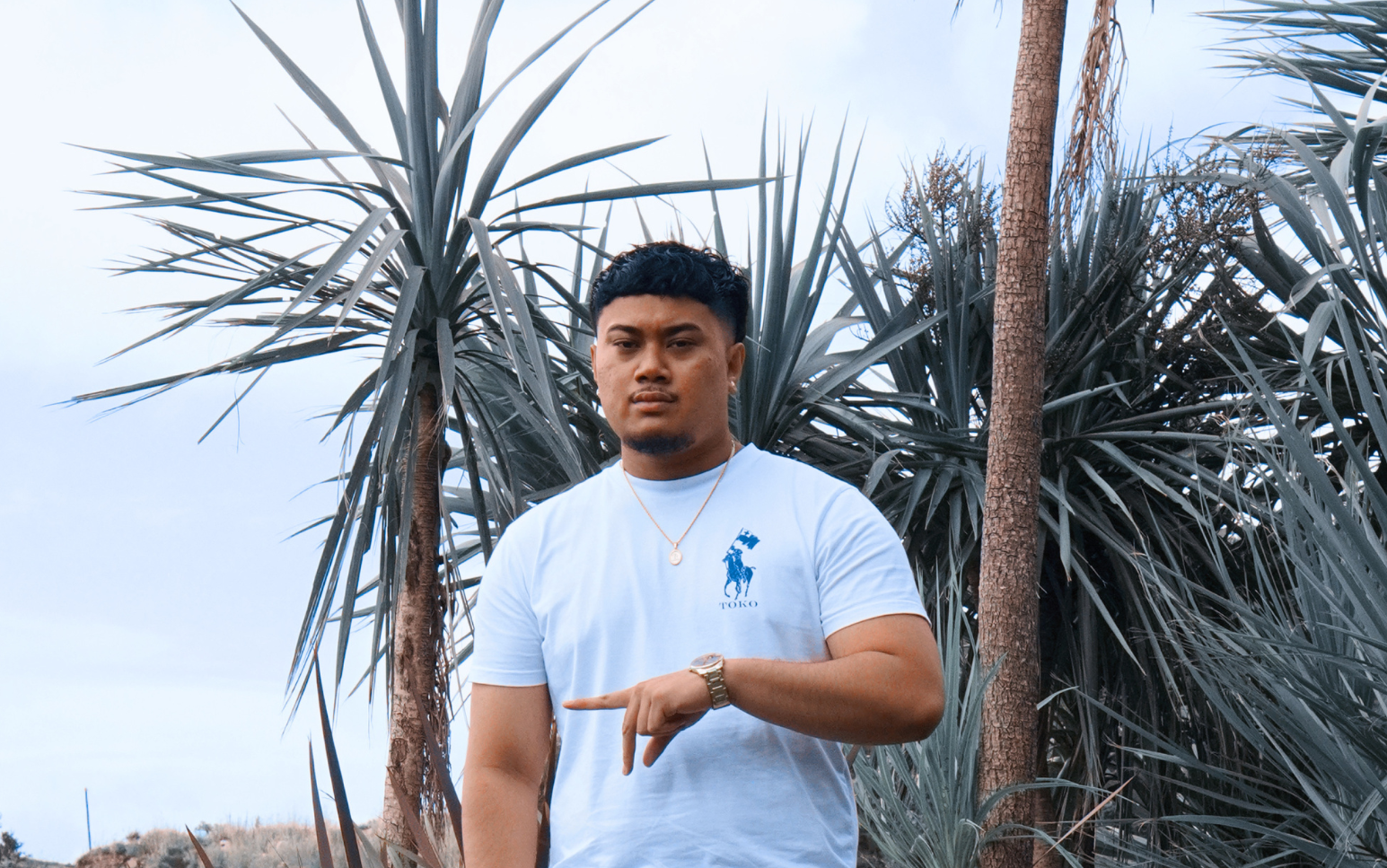

Ronita Kuaoni (left) and Moses Moala-Mafi use music and dance to express their cultural heritage.
Photo/Victoria University/PMN+
Kiribati youth maintain culture through music and connection
In Aotearoa, youth are celebrating their Kiribati culture in university and on stage, and they are reminding others that i-Kiribati voices matter.



Digital Lifeline: New app helps Sāmoans abroad reclaim their heritage

Northern Mariana Islands smash regional barriers with historic Auckland bronze

Sāmoa tightens control of district funds with new seizure powers


Tyrun re-imagines Niuean love in smooth new R&B single ‘Fila’

Digital Lifeline: New app helps Sāmoans abroad reclaim their heritage

Northern Mariana Islands smash regional barriers with historic Auckland bronze

Sāmoa tightens control of district funds with new seizure powers
As Kiribati Language Week unfolds across Aotearoa, university student Ronita Kuaoni reflects on what it means to be i-Kiribati while living and studying far from home.
Born in Tarawa, Kuaoni says her connection to the atolls of Nonouti and Nikunau shapes her identity and family ties.
“I grew up in New Zealand, and some of the only times I got to speak i-Kiribati was in more professional-type settings,” she tells Tofiga Fepulea’i on Island Time.
“My mum’s family is very hearty Nikunau... when it comes to family functions, they’ll always play the Nikunau songs and Nikunau dances – and that’s the same with my dad’s side for Nonouti.”
Kuaoni recently returned from a long-awaited trip home, the first visit in 12 years. She describes the experience as bringing mixed emotions.
“Just seeing my family made me realise that I want to spend as much time as possible with them, just while we are above the water. You have that knowledge that our country isn’t here for a long time,” she says.
“While you're preparing yourself to have a future here [in New Zealand], there’s that lingering thought of, am I doing this for the sake of my people and my community, or is this sort of my safe getaway?”
Diverse identity through music
Artist Moses (Mosi) Moala-Mafi, who performs under the name ‘Kiridox’, uses music to express and learn about his diverse heritage.
“My dad’s Tongan and my mum’s Kiribati-Chinese,” he told Sanele Chadwick on Pacific Mornings. “They met in Fiji long before I was born at the University of the South Pacific.
Watch Ronita Kuaoni's full interview below.
“I haven't been able to express [my Kiribati side] verbally and speak it, but I feel like with music, it’s come a lot more naturally. I've been able to tie certain words or phrases into the music. I’ve received a lot of messages just saying ‘thank you for wanting to put us on the mainstream’.”
Moala-Mafi’s music combines melodic rap with West Coast R&B, island pop, and hip-hop, layered with cultural influences that help him connect with his roots.
He also points out something many may not know: “The actual name of the islands is Tungaru ... Kiribati comes from the word Gilbert, from the Western influence. And I think a lot of people don’t know that Kiribati boys are really skuxx,” he laughs.

Kiridox (Moses Moala-Mafi) proudly represents his Tongan and i-Kiribati heritage. Photo/Instagram
Culture, study and connection
Meanwhile, Kuaoni is proud to represent her culture during her second year at Victoria University of Wellington, studying Political Science and Pacific Studies.
“Being one of the countries that is affected by climate change, there is a broader discussion when it comes to sea level rising... In Political Science, it’s more the legal side of things and just connecting towards your own culture.”
This year’s Kiribati Language Week theme is: Maiuakinan te katei ri nanon te tangira ma te ikarinerine bon wantongan te mwenga ibukin te rikirake – Living our valued cultural practices through love and respect upholds our dignity and growth for a successful future.
The Micronesian nation is home to more than 134,000 people, with over 3225 of i-Kiribati descent living in Aotearoa.
Kinaua Ewels, of the New Zealand Kiribati National Council, says the language is more than just words. It is a living legacy.
“Speaking Kiribati keeps us grounded in who we are. It connects us to our ancestors, our families, and our future. When we speak Kiribati, in our homes, churches, and communities, we’re not just using words, we’re passing on identity, pride and strength to the next generation,” Ewels says in a statement.
“As a teacher and language tutor, I see how vital it is to foster this from a young age. Through prayer, storytelling, celebration and everyday conversation, our language continues to thrive.”
Watch Moses Moala-Mafi's full interview below.
Keeping the language alive
Kuaoni encourages young people to normalise speaking a few ‘Taetae ni Kiribati’ words and phrases with friends and family.
“Talk to your elders more, because I think they’re more open to correcting you if you do get it wrong... and don’t be embarrassed. If you’re wanting to connect to your culture, dancing is a great way to connect, and it does open up the path for you to learn your language alongside that.”
Mafi echoes this sentiment. “Don’t be afraid... especially in college or in high school when people are repping their cultures. The Polynesian side takes over a lot of the time in New Zealand, so with Kiribati culture, step out and tell people more about where you're from.”
Wikin te Taetae ni Kiribati - Kiribati Language Week - ends on Saturday with celebrations of the island nation's Independence Day - 46th anniversary - from the United Kingdom in 1979.